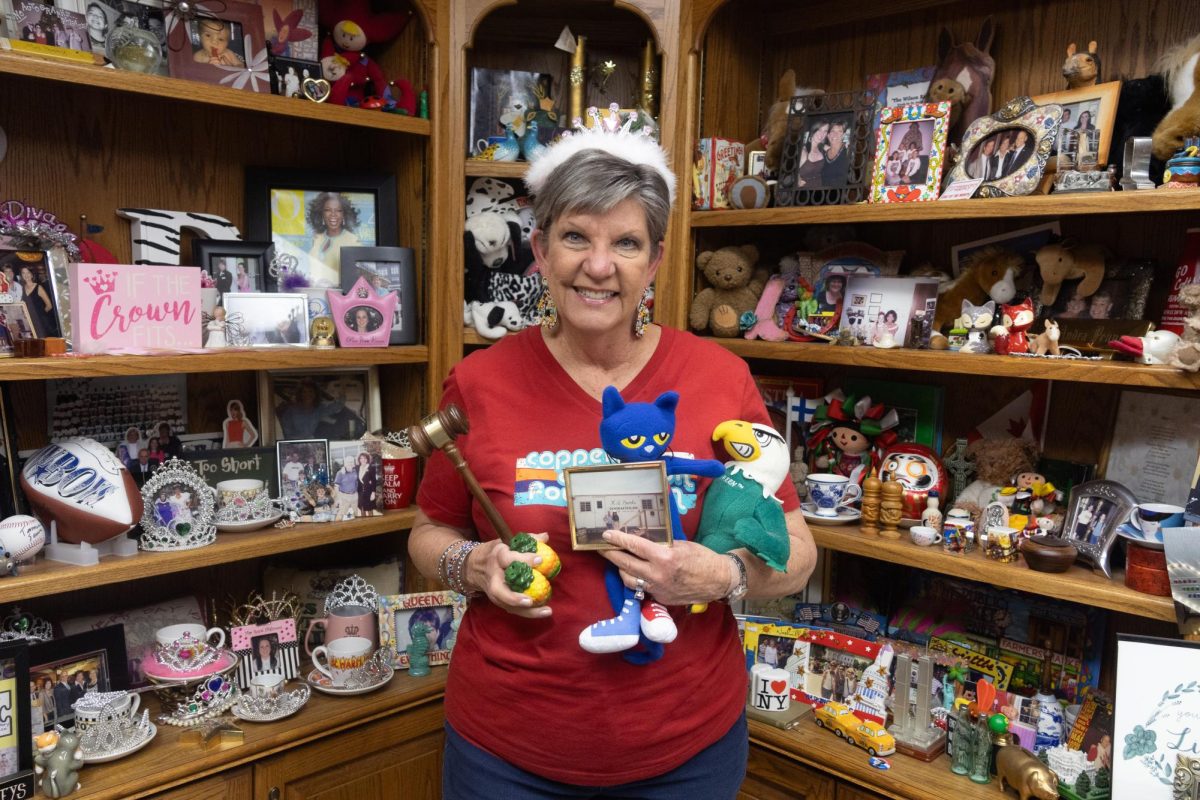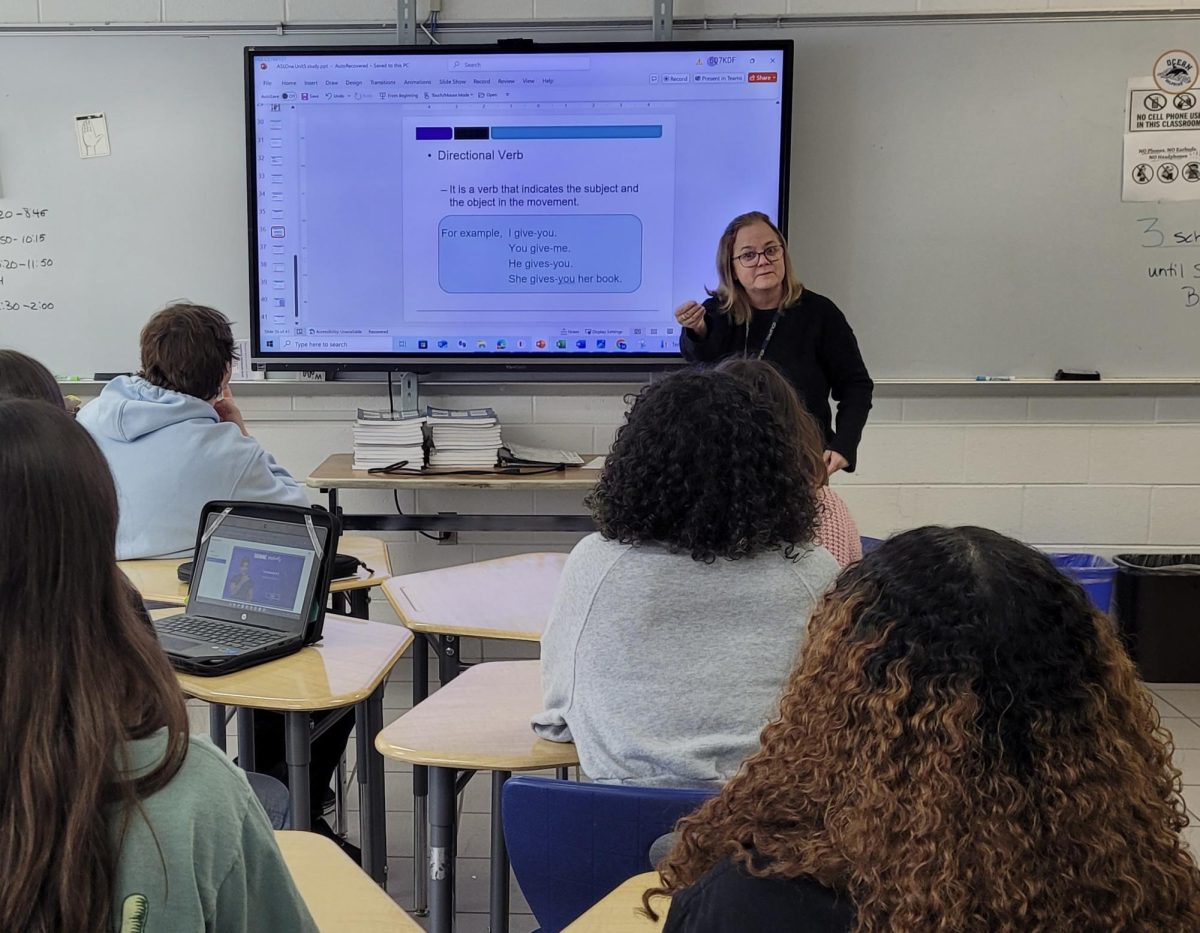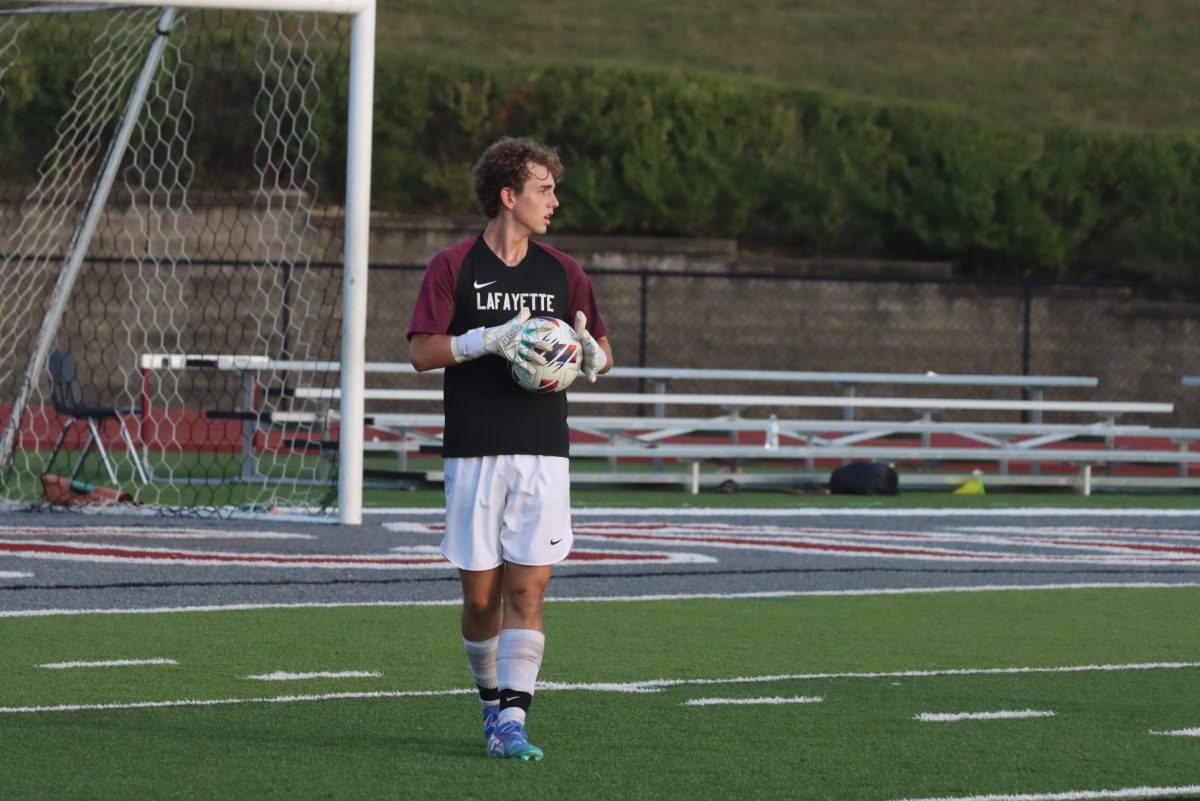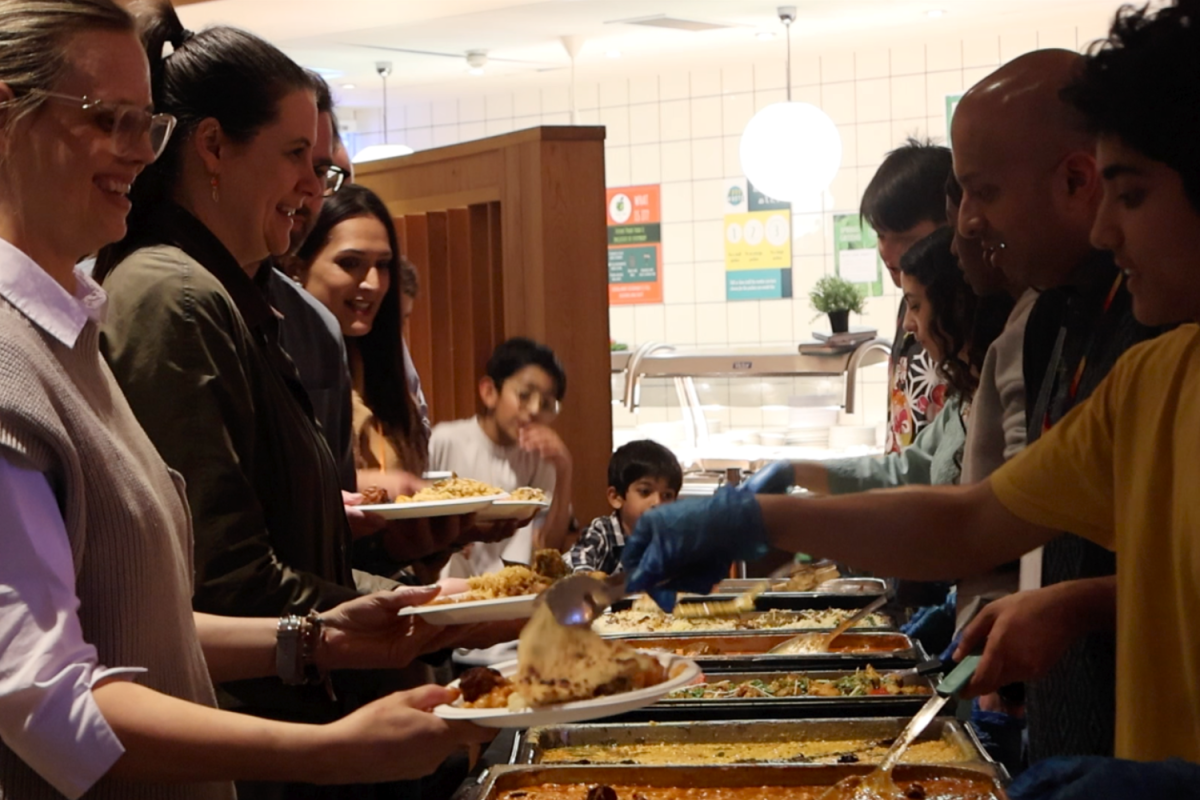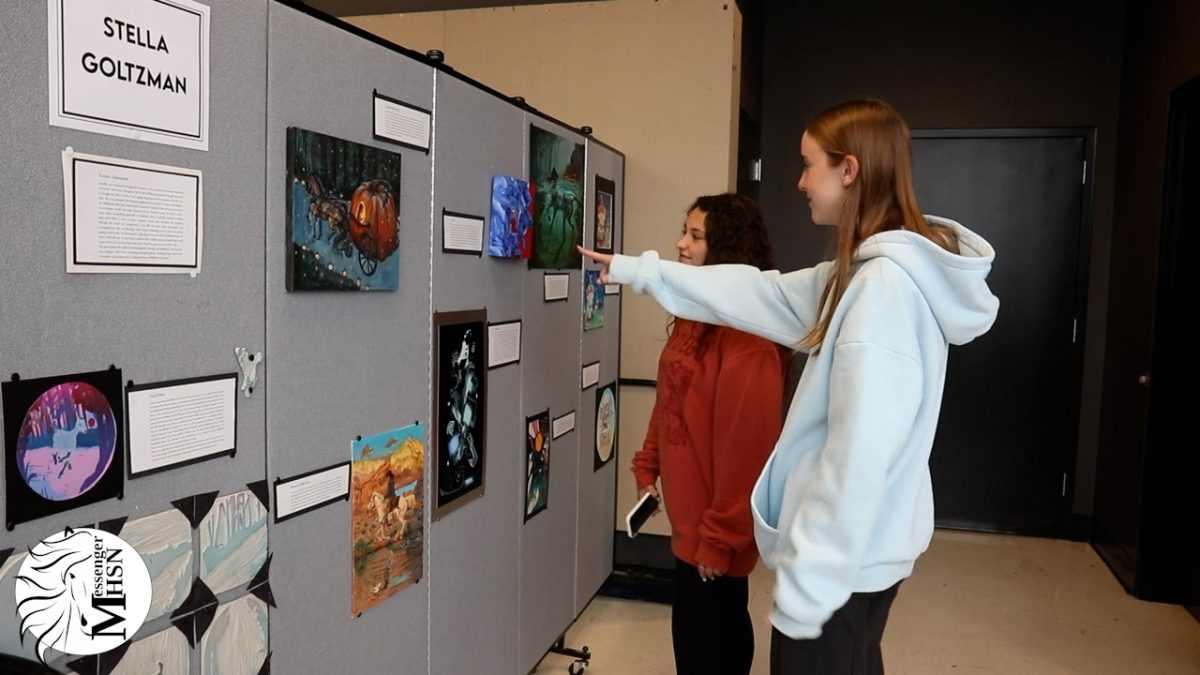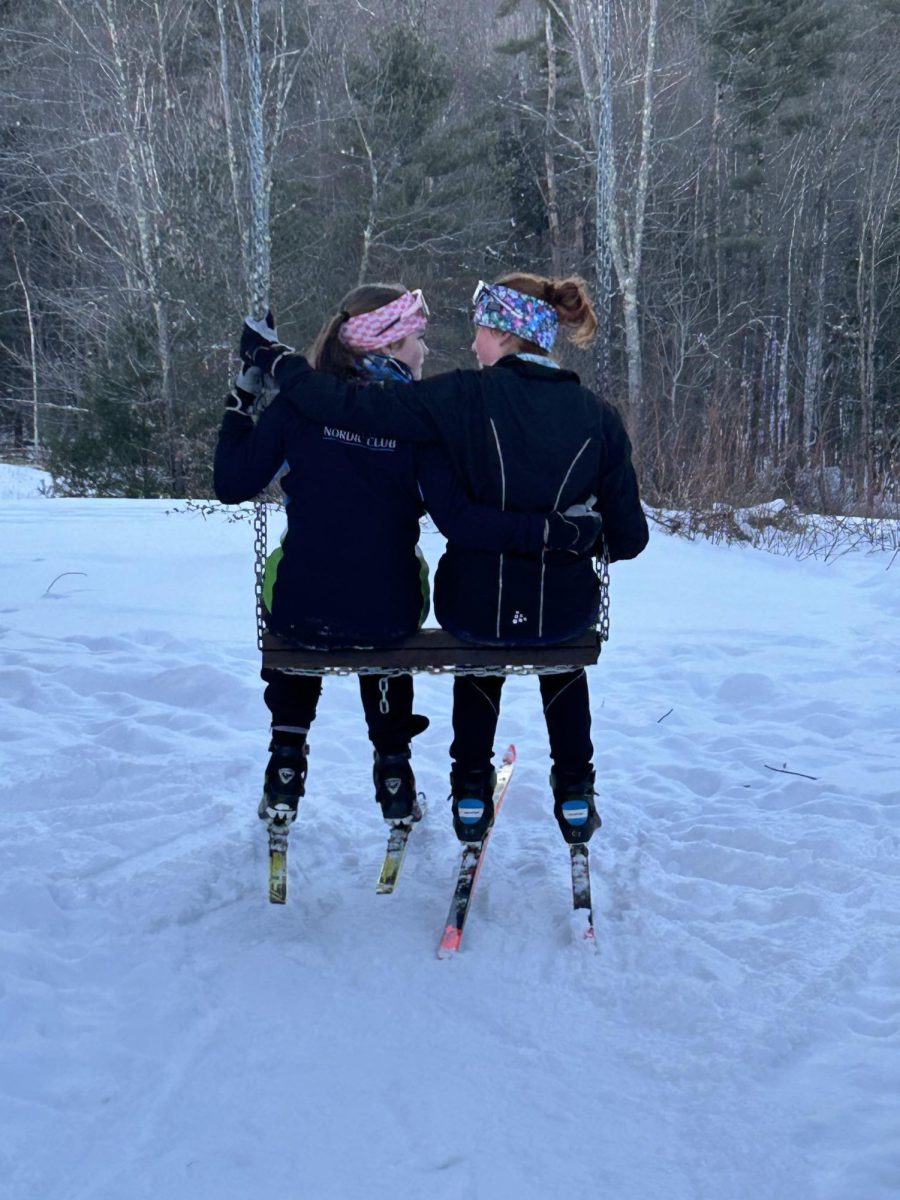Mid-race in one of her first high school Nordic ski races, Corrine Prevot tore her hat off her head and threw it to the side of the trail. Prevot had made the hat herself, but it was made of fleece and far too warm to race in. When she went back to get it after her race, it was gone.
“And I was just so bummed,” Prevot said, “Because it was such a cool hat, and I loved it, but it was too hot to ski and sweat in. So, subconsciously, I went and looked for a thinner fabric and found four-way stretch lycra.”
Prevot made a batch of the new, lighter hats for herself with the lycra fabric and she and her teammates tried them out at a race in Maine.
“We had so much fun, and we were taking photos, and some of the girls we skied with asked me about the hats and if they could buy some. So I sold my first hat there,” Prevot said.
Now, Skida products like headbands, hats and neck gaiters are in stores all over the United States and Canada, though all of the products are still made in the Northeast Kingdom, where it all started. Skida has a pop-up shop in Boulder, Colorado and its own flagship store right here in Burlington, Vermont.
Prevot’s entrepreneurial journey started in high school at Burke Mountain Academy, here in Vermont, where she grew up. She made her first retail sales through the local skiing and biking store East Burke Sports. Her advisor and math teacher, Vivian Buckley, encouraged and supported Prevot in those early days and was the one to give her the landmark ride to drop off her hats to be sold for the first time in a retail store.
“Having been around at the very beginning,” Buckley said, “[Skida’s] growth and success is obviously impressive. From what began as just hats made at home, [Skida has become] an expansive product line, with partnerships with professional athletes, non-profit organizations and artists and sourcing/producing materials from special places like Nepal with sustainability, awareness and activism as part of the brand.”
Prevot’s parents also supported her from the very beginning. Prevot shared one very Vermonty analogy her dad gave her early on about how to grow her business. He told her there are two ways to build a fire: you can build it up bit by bit from twigs and birchbark to sticks and kindling until “…eventually, the fire grows big enough to support some big logs that can catch flame and keep the fire burning all night,” or you can douse a big bonfire pile of twigs, sticks and logs in kerosene. But those gas fires “…might burn up all at once, or it might be harder to keep that fire going for a long time.”
Prevot has built up her fire bit by bit, helping it survive all kinds of challenges and changes it may face, and grow stronger because of them. This strategy of working hard to slowly build up her business so it does not burn out like a gas fire has paid off, according to Buckley.
“Others can imitate but few have the drive and the vision to dim the light of Skida’s star,” Buckley said.
That drive and vision have been essential in keeping Skida alive and glowing brighter than ever in the face of challenges.
“One of the biggest challenges is constantly navigating change,” Prevot said. “It’s a wonderful thing because it’s a function of growing and evolving. And I think every season has posed its own set of challenges because of the certain scale that we’re at, or what we’re trying to accomplish in that particular season.”
What about the future of Skida? What will be accomplished next? Prevot is not entirely sure, but she does know the general direction Skida is going in.
“I want to see Skida grow to its fullest potential,” Prevot said. “How much joy can we bring? And what other things can we come up with that enhance someone’s experience of being outside in a progressive and joyful way?”
If you are thinking of becoming an entrepreneur, Prevot has some advice: find the specific thing where you find joy or success and “just start doing things.”
“[If] it’s something where you’re making a positive impact on a very small scale, then you kind of see what works within that, and then see where it can go.”
This story was originally published on BHS Register on December 17, 2024.

